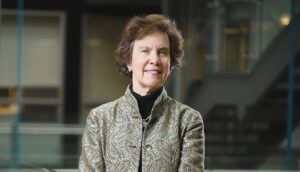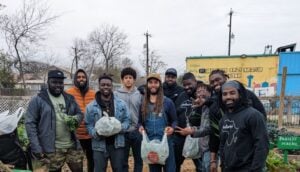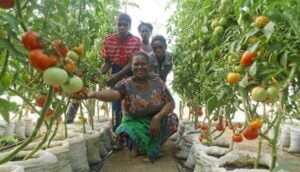The World Health Organization offers a definition of disability that encompasses three dimensions:
1) Impairment in a person’s body structure or function, or mental functioning
2) Activity limitation such as difficulty seeing, hearing, walking or problem-solving
3) Restricted participation in normal daily activities such as work, social interaction and recreational activities.
Over 800 million people globally fit this description and, according to Dr. Josephine Ojiambo, Patron of the Peter Ojiambo Foundation (POF) resources usually dedicated to persons with disabilities (PWDs) have been diverted towards tackling Covid-19.
PWDs in Africa generally live marginalised lives, and while National health authorities have a responsibility to ensure that these persons’ wellbeing is protected, in Kenya, the situation has worsened since the onset of coronavirus reducing access to health information, routine medical reviews and testing services. For some, frequent hand washing and access to handwashing stations is not possible.
Consequently, a considerable segment of this demographic has been left exposed to the pandemic. Covid-19 has taken away attention from PWDs plight, and there is a need to redirect focus back to this community.
POF is working with the National Business Compact on Coronavirus (NBCC), Hygiene and Behaviour Change Coalition (HBCC), and AMREF to build nationwide awareness and sensitisation campaigns PWDs. The Foundation undertook a survey on PWDs and disability since the onset of the during COVID-19 pandemic in Kenya in 2020. The Vulnerability Mainstreaming research included people with physical, sensory, cognitive and vision disabilities and albinism. The study found that over half of PWDs (52.6%) have achieved post-secondary education but that most (39.2%) earn a living on a self-employment basis while unemployment among them remains high at 31.7%.
During the coronavirus pandemic, the findings showed a low rate of access by PWDs to protective measures with only 29% being able to obtain soap, masks and sanitisers. Although radio, digital media and NGOs are the leading sources of Covid-related information, disabled persons still complain about insufficient access to knowledge about the virus.
County governments are lagging behind non-profit organisations and the National Council when it comes to institutional support of disabled people. PWDs say not all government departments are disability friendly and that government services need to be devolved to the grassroots level. Since the start of Covid-19, many self-help community groups that empower PWDs have been forced to cut back their activities, further reducing the dissemination of pandemic-related information.
Recommendations include greater nationwide sensitisation on the needs of disabled people during Covid-19 and other pandemics; workshops to empower PWDs and critical informants on Covid-19 related data, services, legislation and behaviour change communication; and capacity building of stakeholders including policymakers, programmers, data collection and translation managers as well as disabled persons themselves. Furthermore, training PWDs as communicators would be a more socially inclusive and effective way to advocate for tailored services.
Improving services for PWDs could also incorporate assistive technology that is affordable and accessible, universal design principles, reasonable adjustments to workspaces and accommodation, social protections, and inclusive education for stakeholders.
In Kenya, the National Council for Persons with Disability has disbursed funds to PWDs during the pandemic to cushion them against economic hardships. On International Day for Disabilities on 3rd December 2020, an ideal platform to advocate for these persons, the National Fund for the Disabled of Kenya was scheduled to distribute face masks to PWDs countrywide.
Furthermore, POF and its associates hosted a co-creation workshop in December 2020 to develop the content of national media messages on the plight, needs and solutions for PWDs during COVID-19. This will be aired on radio, TV and social media. The campaign will educate the general public, selected service providers, educators, employers, policymakers, and legislators on catering to this segment of Kenya’s population. It will be followed by community-level training programs in ten counties in Kenya in 2021.
We need to hear more voices speak up for PWDs whose plight has been forgotten by governments grappling with responses to Covid-19 that are focused mainly on the able majority.










